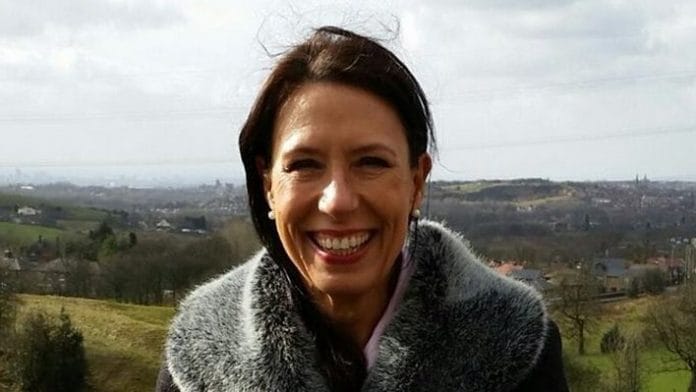New Delhi: British MP Debbie Abrahams was denied entry into India Monday, with the Modi government claiming that she arrived in New Delhi on an “invalid visa” that had been rejected on 14 February.
Government sources have revealed that her visa was revoked on account of her indulging in activities that were against the interest of India. Abrahams, a Labour MP, is the chair of the all-party parliamentary group for Kashmir in the UK.
Sources also said that the Bureau of Immigration had sent her an email conveying that her visa had been rejected but she “chose to ignore it”.
Abraham tweeted a picture of her e-visa, but remained silent on the email.
“This is the e-visa I was issued with by the Indian authorities,” her tweet reads.
This is the e-visa I was issued with by the Indian authorities. pic.twitter.com/QLwJhwFz3d
— Debbie Abrahams MP (@Debbie_abrahams) February 18, 2020
ThePrint explains the controversy.
What is an e-visa?
Citizens of 169 countries, including the US, the UK and Australia, are eligible to visit India on an e-visa. The “objective of visit” for the e-visa includes “recreation, sight-seeing, casual visit to meet friends and relatives, attending a short-term yoga programme… short-term courses, voluntary work, medical treatment, business purpose” and attendance to a seminar or workshop”, among others.
Abrahams in a separate tweet had said that she had only been intending to visit friends and relatives.
“Just to be clear, I have Indian relatives who I was meant to be visiting with & have Indian members of staff accompanying me,” she tweeted, adding, “I was planning to visit an Indian family in Delhi accompanied by my Indian aide.”
Just to be clear, I have Indian relatives who I was meant to be visiting with & have Indian members of staff accompanying me. The reason I got into politics is advance social justice & human rights FOR ALL. I will continue to challenge my own Government & others on these issues.
— Debbie Abrahams MP (@Debbie_abrahams) February 17, 2020
A source in the government, however, claimed that Abrahams had been issued an e-business visa on 7 October 2019, valid until 5 October 2020, but which permitted her to only attend technical and business meetings.
The source further explained that even if Abrahams’ visa had not been rejected, she could not have visited family and friends on a business visa, as that too would be considered a “violation”.
“If an individual, who has been granted a visa for a specific purpose (business or tourist) goes against the purpose of her visit, even if it’s during their stay in India, then it is revoked,” an officer with the Ministry of Home Affairs said.
In such cases, the person is then asked to leave the country and is deported.
“There have been times when visas have been revoked for violations like these and people have been asked to leave. The person traveling on a specific visa has to stick to the purpose of the visit,” he said.
In many cases, Indian authorities also check the history of the traveller, and if there are any indications that the person has violated visa norms in the past or has indulged in any activity that “is against the interest of India”, then they may revoke the visa on that basis.
Another source told ThePrint that in a number of cases, intelligence agencies also prepare reports and send them to the Ministry of Home Affairs on the basis of which a visa of an individual may be revoked.
“If there is a report by an internal agency on an individual that he or she has indulged in activities against the interest of India, then the visa can be revoked before that person reaches India. In such cases they are not allowed to enter India,” the source said.
Also read: UK MP saw email rejecting her visa but ignored it and landed in Delhi, India says
What are the restrictions on foreigners visiting India?
The guidelines set by the government imposes a few restrictions on international travellers. According to the guidelines, foreign nationals have to strictly adhere to their purpose of visit.
“Foreign nationals shall be required to strictly adhere to the purpose of visit declared while submitting the visa application. However, a foreign national (other than a Pakistani national) coming to India on any type of visa will be allowed to avail activities permitted under Tourist Visa,” the guidelines mention.
Foreigners are not allowed to engage in “tabligh work”, which the government has defined as the “preaching religious ideologies”.
“There will be no restriction in visiting religious places and attending normal religious activities like attending discourses. However, preaching religious ideologies, making speeches in religious places, distribution of audio or visual display/ pamphlets pertaining to religious ideologies, spreading conversion etc. will not be allowed,” the guidelines state.






